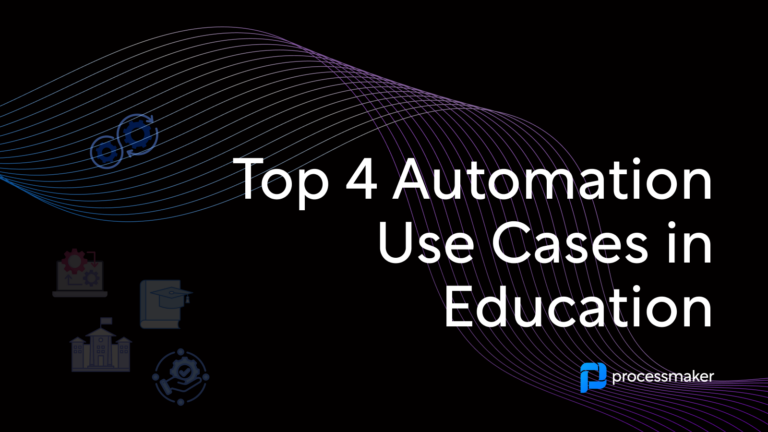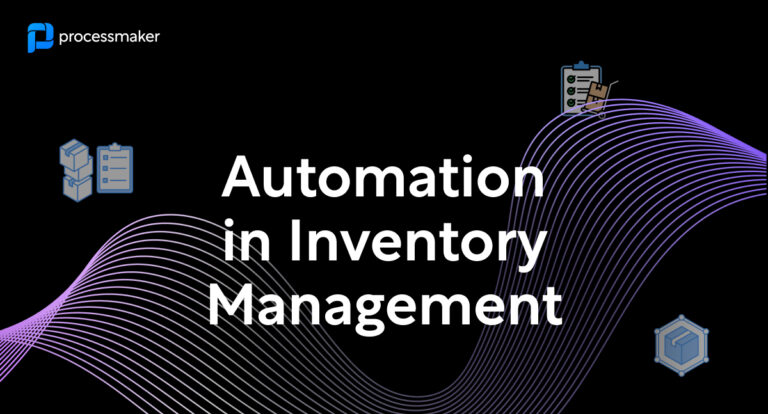Why is it so important for retailers to embrace automation and elevate their business processes? Shoppers expect same or next-day delivery. They want a real-time view into inventory levels. They also want to find what they need in a few fast clicks. An inconvenient shopping experience, as it happens, is one of the top reasons customers abandon their cart. Meeting the speed and convenience demands of today’s shoppers cannot be achieved manually.
The Atlantic crowns “being busy” as the most coveted status symbol of our time. Customers no longer envision shopping as a leisurely weekend diversion; it’s evolved into something we can wedge between other activities. We can shop from home, at work, or on the train. When we find something we want to buy—either through conscious effort or casual social media browsing—we want it now. Automation is one of the chief technologies helping retailers deliver the fast-paced, convenient, and engaging experiences that online and brick-and-mortar shoppers demand in 2021 and beyond.
What is retail automation?
Retail automation involves a series of technologies that shift the responsibility for completing a given task over to software. It reduces human involvement in counting inventory, processing invoices, and sending out marketing promotions. In more out-of-the-box cases, intelligent automation tools replace changing rooms with smart mirrors, letting shoppers virtually “try on” the store’s full stock of outfits without shedding a single layer.
What are the benefits of using business process automation in the retail industry?
Industry experts at McKinsey estimate that automation initiatives across in-store, supply chain, and headquarter functions can generate 300 to 500 basis points of incremental margin for most retailers. Business process automation helps the retail industry:
- Reduce operational costs
- Boost margins
- Eliminate manual errors
- Improve processing times
- Mitigate stock issues
- Marketing and promotions
- Improve visibility into sales reporting
- Offer a customer experience that outshines the competition
What are the areas where leading retailers are investing the majority of their automation dollars? In one study by IBM, supply chain planning, demand forecasting, and customer intelligence top the charts. Nearly every to-do on the modern retailer’s list can be made more efficient through automation.
The top uses for business process automation for retailers
Analysts estimate that large businesses use an average of 90 different software tools to conduct everyday business. For retailers, this can include warranty software, inventory trackers, and website content management systems. Not to mention social media analytics platforms, credit card processing portals, and even Buy Now, Pay Later integrations like Uplift or Klarna. Automation better connects disparate data and platforms to help retailers make more informed, more profitable decisions. Here’s how tech-savvy merchants are using the technology.
Inventory tracking and demand forecasting
The days of tracking inventory via spreadsheet are long gone—a few tiny errors can have a devastating impact on critical shopping windows like the holidays. Even the popularity of traditional POS systems that wait until the day’s end to calculate sales and refresh inventory are waning.
Today’s online shoppers need instant access to real-time inventory, and in-store staff needs immediate answers on a product’s availability. Automation makes it possible by bridging inventory data from various global warehouses, e-comm platforms, traveling pop-ups, brick-and-mortar stores, and third-party marketplaces.
Plus, automation can alert the right parties when SKUs are running low—and not only when stock levels dangerously approach zero. Automation tools can predict when an item will sell out based on shopping trends. Then, they can compare that data to a vendor’s order window to tell you precisely when to reorder to avoid both stockouts and disappointed customers.
Product catalog consistency
In today’s omnichannel environment, it’s important to ensure that product details and specifications are consistent across all shopping sites. This includes data like sizes, colors, materials, and more. Automation tools can streamline your product information management (PIM) strategy by instantly populating all of your marketplaces whenever your team makes design changes or adds new colors or features.
Return processing
In 2020, customers returned nearly $428 billion in products. In fact, to assuage sizing doubts, some retailers now encourage the practice. Automation can take on the heavy administrative lifting by sending out return labels, tracking incoming returns, and processing refunds without human interference.
HR and staffing needs
The retail industry directly employs 1 in 4 Americans, charging businesses from big box stores and independent grocers with processing administrative paperwork for over 32 million team members. Manual coordination of time-off requests, shift swaps, and attendance tracking is not only toilsome—it’s nearly impossible. Automation tools can help staffers collect forms online, pass them through along the right approval chains, and virtually file them away for record-keeping.
Personalized product recommendations
The more options you offer your customer, the better, right? Think again. According to researcher Sheena Iyengar in “The Art of Choosing,” the more SKUs you present, the more likely a customer will click the “cancel button.” Retailers are using automation to drive sales by making it easier for customers to find the right option. It might sound obvious, but it is one of the top 5 areas where customers most appreciate the convenience. Retailers can use automation to recommend products based on a customer’s past buying habits or items purchased by similar shoppers.
Customer communication
Automation is a powerful tool for launching more successful marketing campaigns. You can track browsing behaviors and purchasing habits and inject this insight into personalized marketing emails and unique, targeted promotions for different customer groups. Using automated marketing tools, you can kick off more customized campaigns like time-based reminders. Easily send a quick alert when a customer is nearing the wear-down date of a pair of running shoes or soon to use up laundry detergent.
Chatbots are also a form of automation top retailers are leaning heavily into. When browsing an online store, customers can ask quick questions like “does this phone case come in blue?” or “what are your store hours?” Well-trained software bots can fire off fast answers without engaging a staff member.
Innovative ways retailers take automation to the next level
Retail brands are constantly looking for ways to help customers cut through the catalog by experimenting with personalized recommendations. Some companies, like Stitchfix, use automation to remove customer guesswork altogether.
Instead of scrolling through a sea of options, artificial intelligence helps build every order to ship you a curated selection of dresses and tops it thinks you’ll like. The company’s algorithm balances your personal preferences against items you’ve returned and fashion choices adored by shoppers with a similar style sense. Software can use technology like Natural Language Processing (NLP) to understand customer feedback like “I hate the color yellow,” while human staffers better understand situational context like “I need an outfit to wear to a college reunion my ex is attending.”
Data analysts and software models are just as important to the process as their staff of fashionistas: it’s a modern blend of automation and human judgment.
Business process automation not only streamlines internal processes, it can reshape your brand into one customers will habitually engage with. Retailers in all sectors like Amazon, Nike, Kroger, and Sephora are rocketing beyond initial automation strategies to drive entirely new ways of shopping. The more retailers lean into the desire for convenience, the more likely they are to cultivate customer loyalty.





